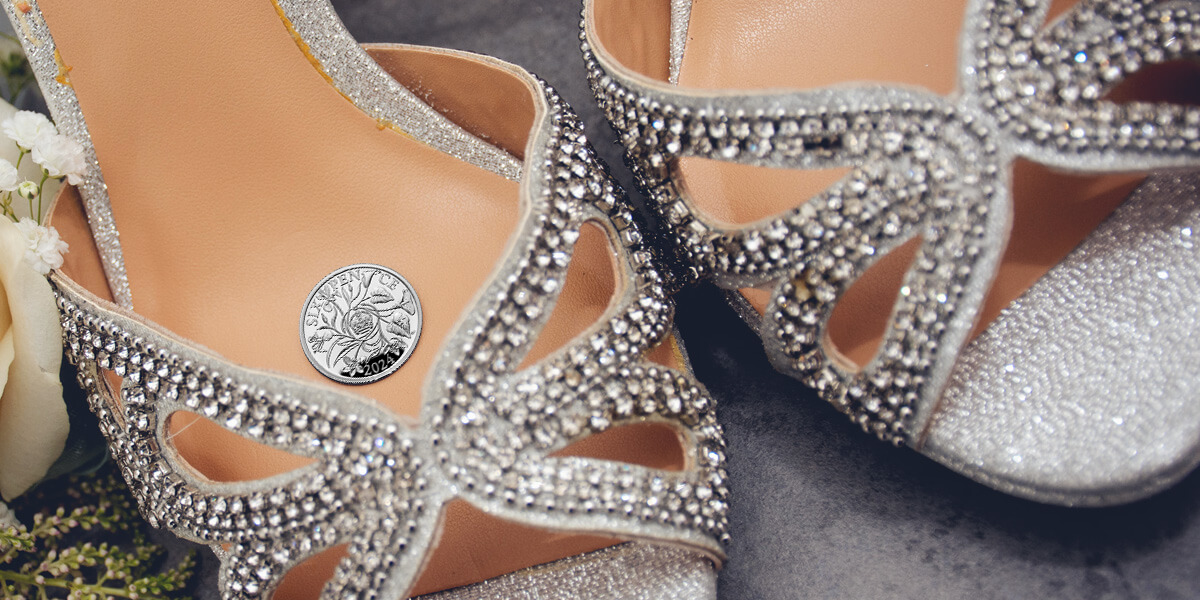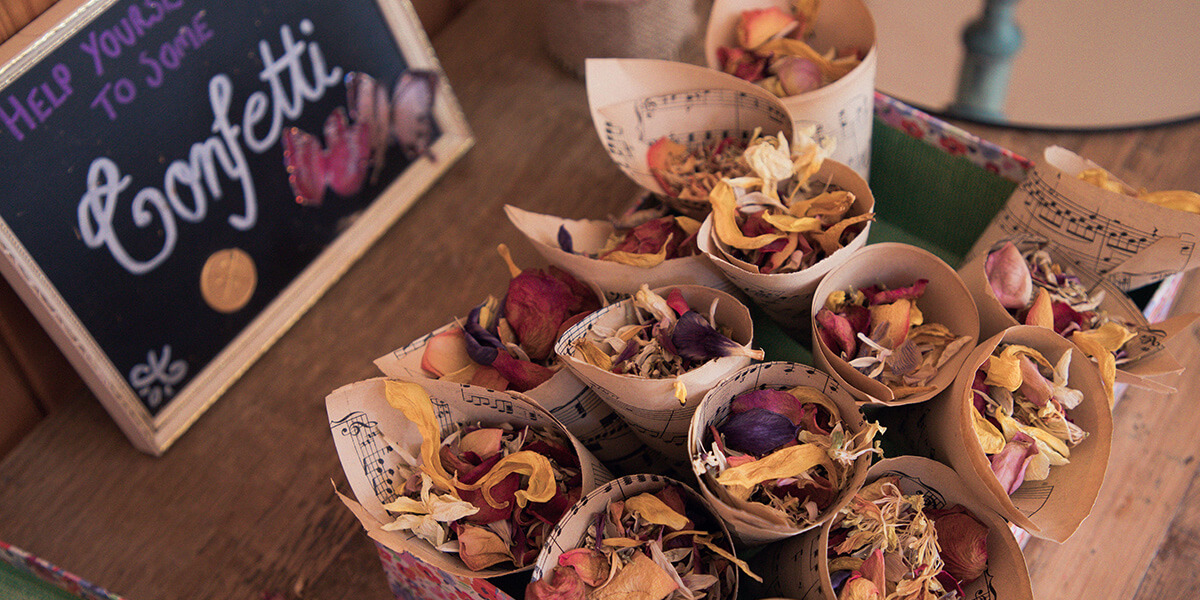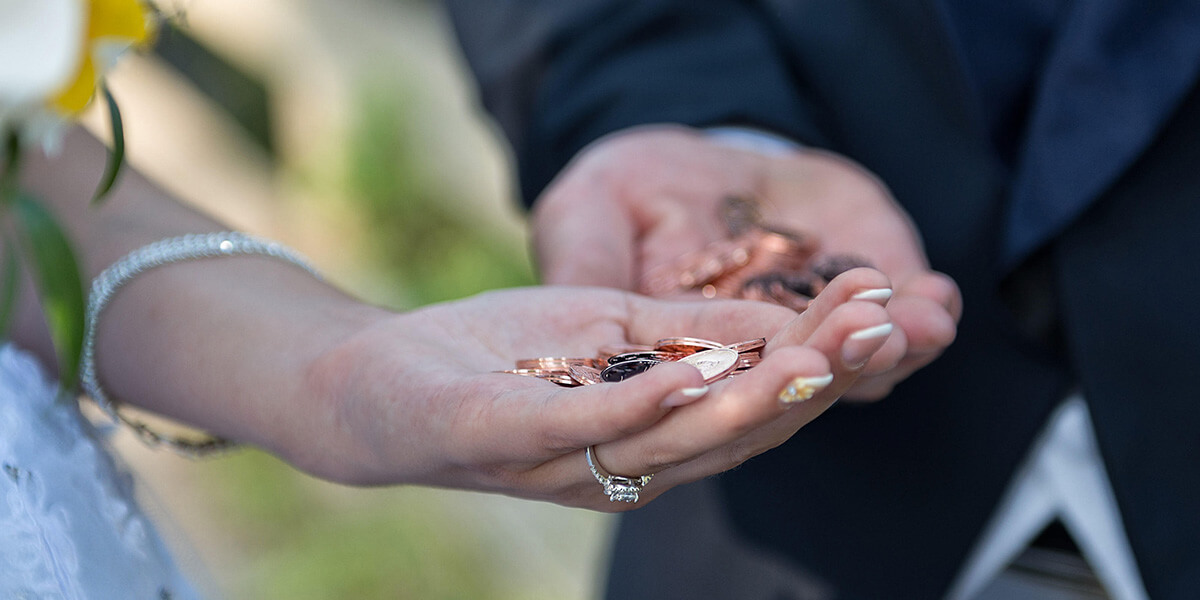Coins have long played a traditional role in a variety of life’s special moments, from the custom of crossing a newborn baby’s palm with silver to putting a silver coin in a Christmas pudding at Christmastime. Naturally, it’s only fitting that this tradition also extends to one of the most important days in a person’s life – their wedding day.

A British Tradition
In the United Kingdom, many of us will be well aware of the verse ‘something old, something new, something borrowed, something blue’ in reference to what the bride should traditionally wear for good luck. However, what is less well known is that the rhyme ends with the additional line ‘and a silver sixpence in her shoe’.
For many years, the father of the bride would slip a sixpence into his daughter’s shoe before she walked down the aisle. In addition to bringing good luck, the sixpence is also said to symbolise that the father wished his daughter prosperity in her marriage.
Another lesser-known British tradition is to insert a silver coin into the cork of a champagne bottle popped on the day. Typically, the coin is minted in the same year to commemorate the wedding, resulting in a quirky little memento for the happy couple.

Traditions Across Europe
Coins also play a part in wedding day festivities in a number of European countries. Similar to the British tradition, in Sweden the bride’s mother gives her daughter a gold coin to put in her right shoe before the wedding. The bride’s father then gives her a silver coin to put in her left shoe. The coins symbolise their wish that the bride will never go without money.
Meanwhile, Lithuania has its own unusual custom whereby the wedding guests bring silver dollars, half dollars and quarters and throw them onto the dance floor. One of the coins is marked with the bride and groom’s initials and, at the end of the first dance, the wedding guests pick up all the coins for the newlyweds and put them in a clear vase. Whoever picks up the initialled coin gets to have the next dance with either the bride or the groom.
In Spain, the groom gives a coin to his bride after the rings have been blessed. The coin symbolises his willingness to share all that he has or will have in the future. The bride will then keep the coin as a family keepsake. If the couple go on to have children, the bride will give the coin to her eldest son to give to his own bride. This tradition is also common in Latin America.
In Poland, coins are implemented into the proceedings in a novel way, with coins taking the place of celebratory confetti. As the bride and groom leave the ceremony, the wedding guests throw coins over the married couple. The pair then gather these coins together as a symbol of their newfound unity in marriage.

The Perfect Gift
If you’d like to give a long-lasting gift to a newly married couple, a coin symbolises good fortune and unity, making a wonderful gift for the happy couple.
A coin that is dated with the same year of the wedding is a memento that newlyweds will be able to cherish forever, and perhaps even pass on to the next generation.
Be Inspired

Stir-Up Sunday and the Christmas Sixpence
Discover More
KEEP THE TRADITION ALIVE –STIR UP SUNDAY
Learn About Stir Up Sunday